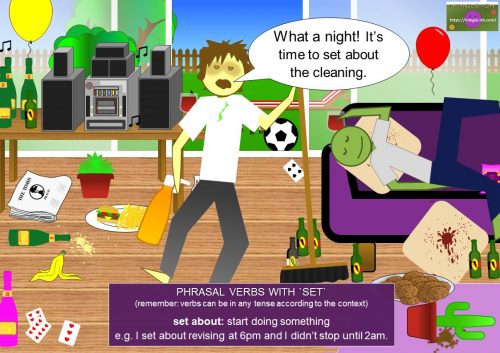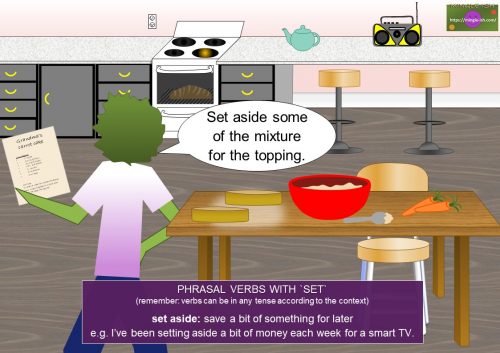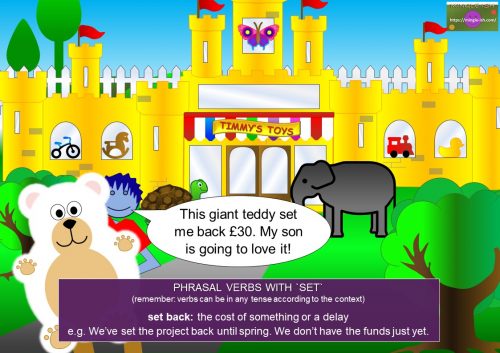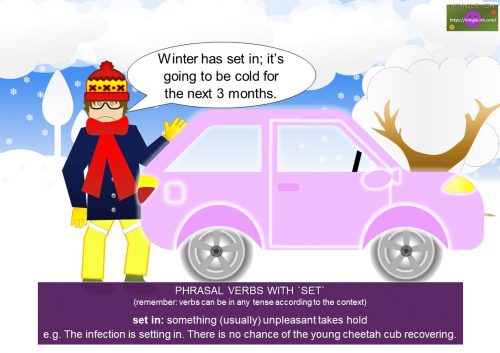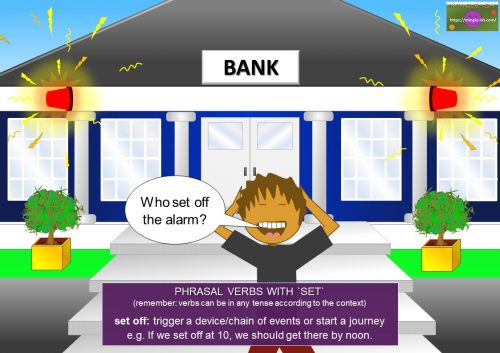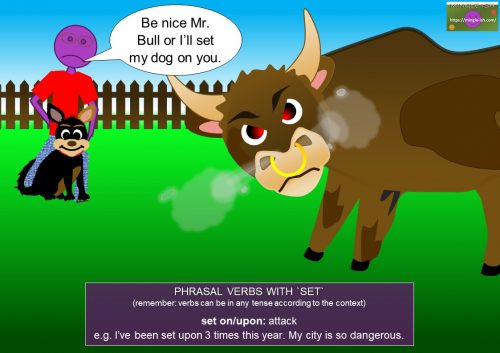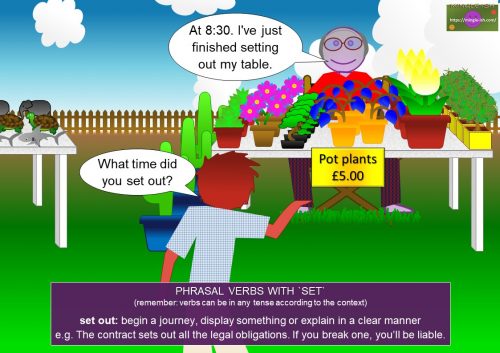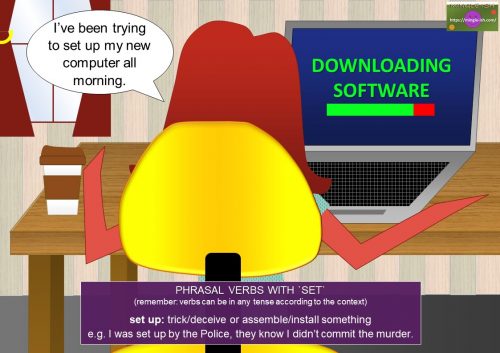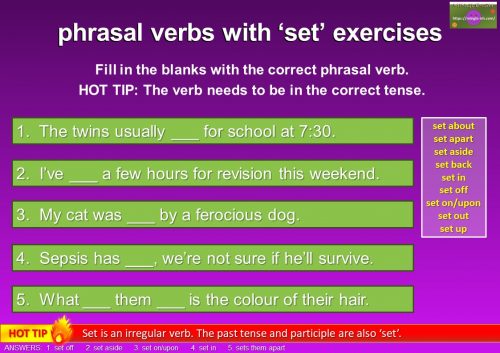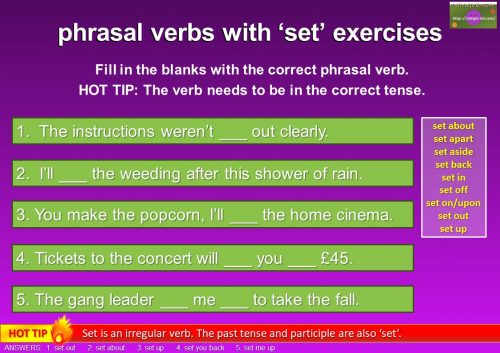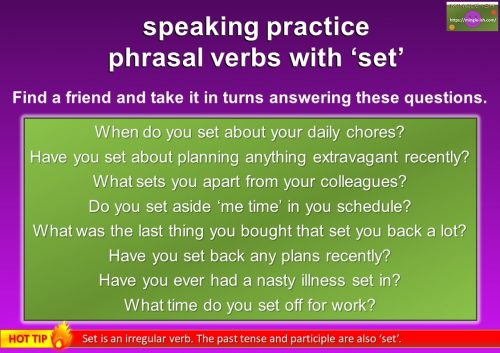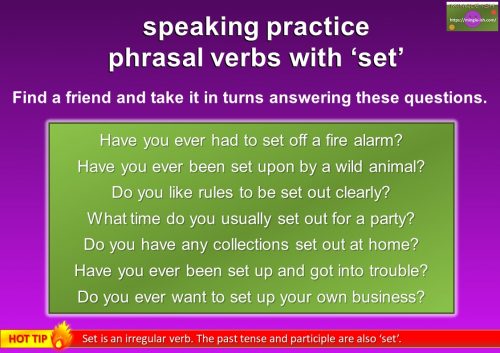Contents
What does ‘set’ mean?
The word ‘set‘ can mean many different things. As a verb, the meaning is to harden or put something in a specific position.
For example:
- The jelly will take 3 hours to set. (harden)
- Darcy will set the table ready for the dinner party. (put in a specific position)
Set is an irregular verb. The past tense is set and the past participle is set.
phrasal verbs with set
Let’s learn the meaning of the phrasal verbs that contain the verb ‘set’ in more detail and see some examples in use.
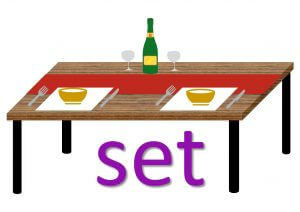
set about
meaning – start doing something
example – I set about revising at 6pm, I didn’t stop until 2am.
set apart
meaning – distinguish between different things
example – The winners right hook is what set him apart from the other competitors.
set aside
meaning – save a bit of something for later
example – I’ve been setting aside a bit of money each week for a smart TV.
set back
meaning – the cost of something or a delay
example – We’ve set the project back until spring. We don’t have the funds just yet.
set in
meaning – something (usually) unpleasant takes hold
example – The infection is setting in. There is no chance of the young cheetah cub recovering.
set off
meaning – trigger a device/chain of events or start a journey
example – If we set off at 10, we should get there by noon.
set on/upon
meaning – attack
example – I’ve been set upon 3 times this year. My city is so dangerous.
set out
meaning – begin a journey, display something or explain in a clear manner
example – The contract sets out all the legal obligations. If you break one, you’ll be liable.
set up
meaning – trick/deceive or assemble/install something
example – I was set up by the Police, they know I didn’t commit the murder.
phrasal verbs exercises
How much have you learnt from this page? Test yourself by filling in the blanks with the correct phrasal verb with ‘set’. Answers are at the bottom, good luck!
phrasal verbs speaking practice
Do you think you understand all the phrasal verbs with ‘set’ now? Well… there’s only one way to find out. Find a friend (or a mirror) and practice answering these questions. You can always go back to the pictures above if you get stuck.
Did you know that many idiomatic expressions (idioms) in English also contain a lot of verbs? Just like phrasal verbs, idioms are a major part of the English language (slang in particular). They are used constantly amongst native English speakers and are handy to know and understand.
Now you’ve learnt all the phrasal verbs with set, how about learning the idioms with set too?
phrasal verbs courses
If you’ve enjoyed this page, there are plenty more for you to look at. Click here to see the list of groups ready and waiting to be studied. Maybe you just like informal/slang English? Head to my useful tips and information section for loads more hints and tips to speak like a native.
If you really want to take your native speaking to the next level, how about taking a course? Here are some of the best ones:
